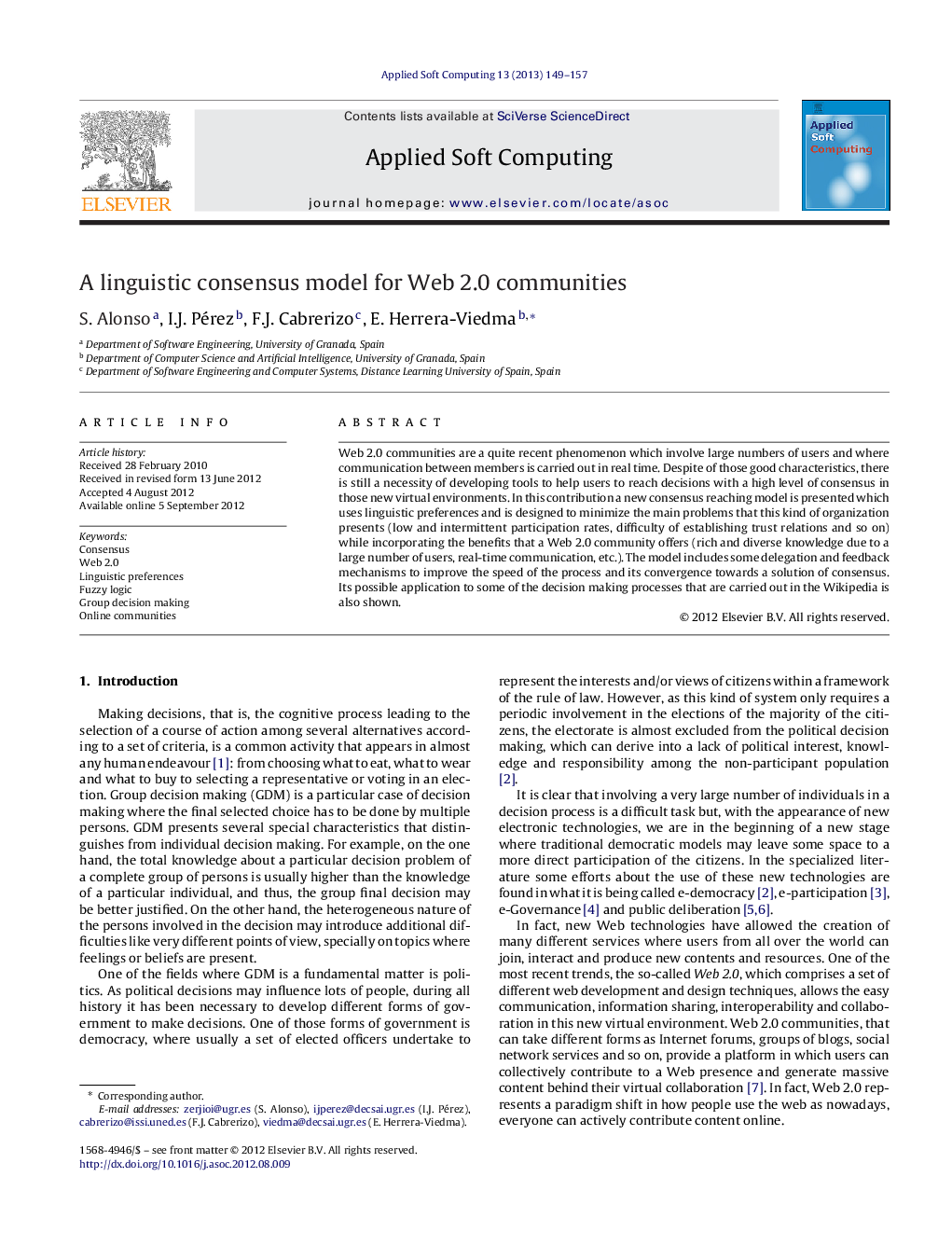| Article ID | Journal | Published Year | Pages | File Type |
|---|---|---|---|---|
| 495593 | Applied Soft Computing | 2013 | 9 Pages |
Web 2.0 communities are a quite recent phenomenon which involve large numbers of users and where communication between members is carried out in real time. Despite of those good characteristics, there is still a necessity of developing tools to help users to reach decisions with a high level of consensus in those new virtual environments. In this contribution a new consensus reaching model is presented which uses linguistic preferences and is designed to minimize the main problems that this kind of organization presents (low and intermittent participation rates, difficulty of establishing trust relations and so on) while incorporating the benefits that a Web 2.0 community offers (rich and diverse knowledge due to a large number of users, real-time communication, etc.). The model includes some delegation and feedback mechanisms to improve the speed of the process and its convergence towards a solution of consensus. Its possible application to some of the decision making processes that are carried out in the Wikipedia is also shown.
Graphical abstractFigure optionsDownload full-size imageDownload as PowerPoint slideHighlights► A novel Linguistic Model is created to support Consensus in new Web 2.0 Communities ► It takes advantage of the main characteristics of those online communities. ► It minimizes the effect of the difficulties that arise in big consensus processes. ► Its application to current Web 2.0 Communities is discussed.
